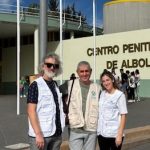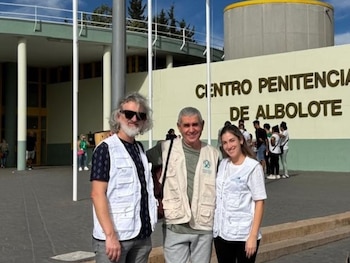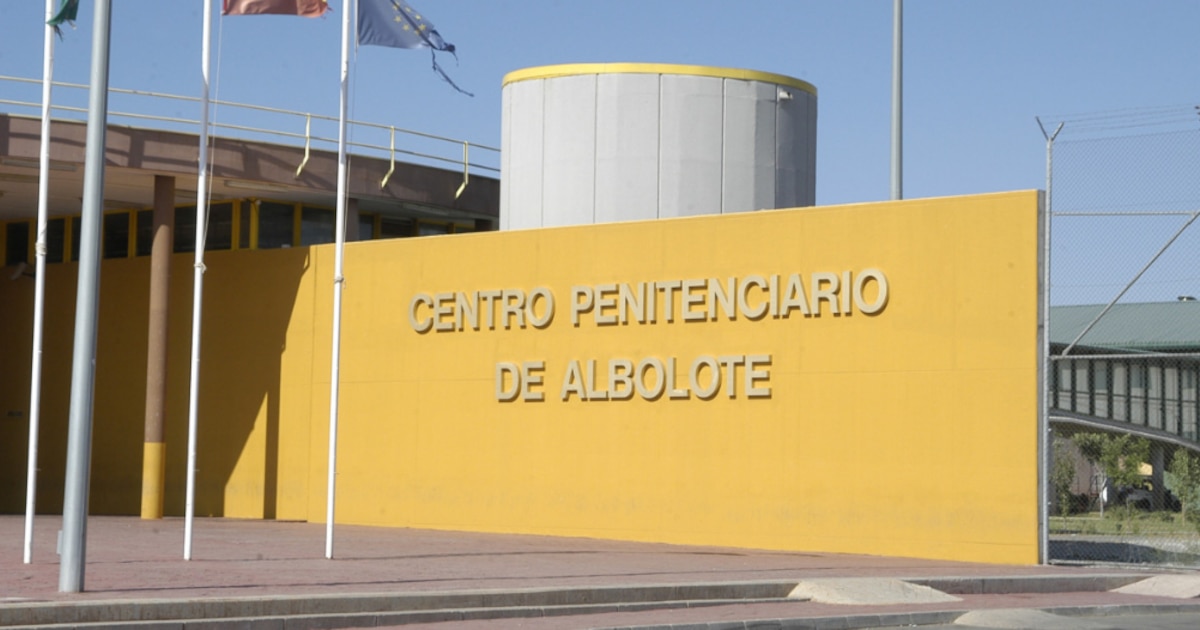


Manuel Trabado Herrera is clear that the objective of an NGO should be to work with the vulnerable population and, for him, no one fits that description better than the prison population. “People in prison are the most forgotten people“, assures the delegate of the NGO Nursing Solidarity, in a conversation with Infobae Spain. Since the beginning of October, his team has been going to Albolote penitentiary center (Granada), where it develops a program for inmates with serious mental disorders.
Among the approximately 1,300 inmates who reside there, it is estimated that around 40 suffer from some problem of this type. “There are few centers that have so many serious mental disorders inside,” says José Joaquín Antón Basanta, doctor and president of the Spanish Society of Penitentiary Health (SESP).
Trabado has been working with mental health problems since 2005 and has started, together with three other volunteer nurses, a program to address the needs of this penitentiary center. For two hours a week, they treat a small group of prisoners and, through physical, mental and social activities, they offer resources to help the emotional controlteamwork and reinforcement of self-esteem.
The project for these toilets, however, will only provide care to fifteen people. “These are extraordinary initiatives that would be necessary in all prisons, but unfortunately that is not the case,” laments Antón Basanta. With a ratio of 0.2 psychiatrists per 1,000 inmatesmany of the Spanish inmates will begin and end their sentence without treatment consistent with their mental illnesses.
A report from the SESP and the Spanish Society of Legal Psychiatry (SEPL) showed in 2023 that 34.8% of people in Spanish prisons have at some time been diagnosed with a mental or emotional disorder, and 32.2% have had suicidal ideas. Of them, more than 60% have attempted suicidebut “the institution [penitenciaria] “it’s not enough” to serve them all, says Antón Basanta.
This is due, in large part, to the conditions of health personnel in prisons. “There are no staff psychiatrists“explains the doctor, something that does not surprise him because less money is earned within the prison system. In 2003, the regional health services should have integrated penitentiary care, but only Catalonia, Basque Country and Navarra have carried out this procedure. “We are some kind of ghetto outside, healthcare provided by the Ministry of the Interior,” he clarifies. This means that they are excluded from all those supplements that doctors in regional health systems enjoy.
Thus, much of the care that prisoners receive ends up depending on consulting psychiatrists who go to the centers once a week, or non-profit associations that offer their services.
In the most complex cases, they may end up internalized in one of the two prison psychiatric hospitals that exist in Spain, in Alicante and in Seville, but they do not represent the most appropriate solution either. “What the system does is uproot them from their environment“, criticizes Antón Basanta. “It makes no sense that a person who has schizophrenia and that in a delirium he has committed a crime and has to comply [condena] in Alicante when his community environment, where he must be treated and stabilized, is in Tenerife or A Coruña,” he adds.
This lack of attention has its risks, the doctor warns: “If they leave prison and have not been properly stabilized, they will come back again”.

The supportive nurses They go to the specialized module every Thursday to treat serious mental disorders in a population “that can be complicated,” acknowledges Trabado Herrera. This entails a series of challenges for healthcare workers, who work in an environment unknown to them. “Until we manage to understand, accept and move within the prison environment, it is a challenge for us,” says the nurse, to which is added “the distrust of the inmates.”
Although it is a voluntary activity in which they show interest, prison “is an environment in which everyone has to be strong, in which can’t show weakness”, which makes the development of attention difficult. And it is that “if in the ‘free’ society there is a stigmatization of the mentally ill, in prisons it was not going to be any other way,” he says.
“They have their needs covered, but they are not a cohesive group. They are a group of inmates who are stuck in the same space. What we have to create is an environment in which they feel relaxed and start making a group“That would be ideal,” adds the health worker. Trabado is optimistic, but recognizes that one of the great limitations of the project is time. “The ideal would be to be able to do the activity at least two days a week, but we there is a lack of volunteers”, he laments.
For now, first impressions, both from prison staff and participants, are positive. “My goal is to accompany him from now until long after he leaves prison, because if not, I know that that reintegration that we want It is very difficult for it to occur,” he concludes.
